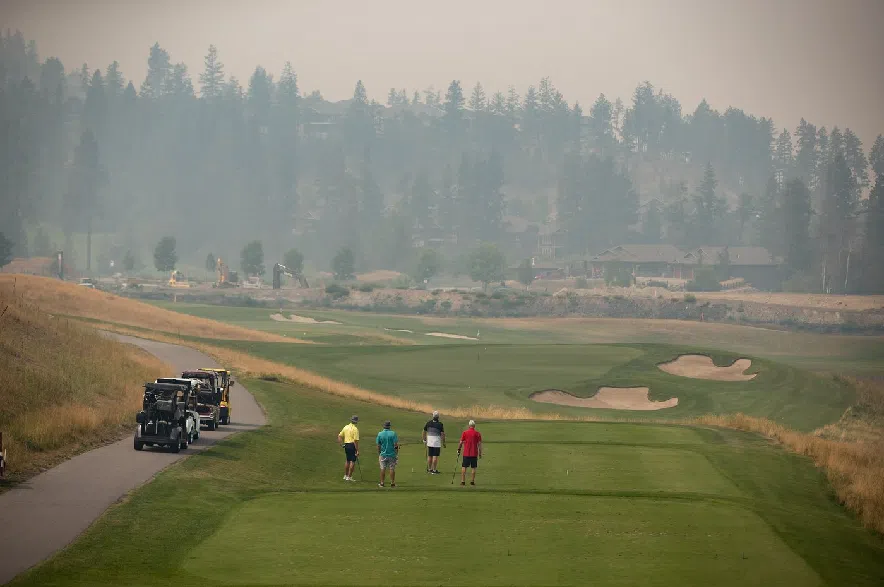Wildfire smoke is affecting air quality in parts of Saskatchewan, adding another layer of alerts to the relentless hot weather blanketing the province.
Environment and Climate Change Canada (ECCC) said on Sunday that an air quality value of 10-plus in Buffalo Narrows, Prince Albert and Saskatoon would continue until Monday, when Prince Albert and Saskatoon air quality was expected to fall to a moderate value of five .
The air in Regina will vary from moderate to high risk on Sunday night and Swift Current will also see conditions vary from moderate to high risk on Sunday. Both centres were forecast to return to normal air quality values on Monday.
The smoke from wildfires in the north of the province has been added to by wildfires in B.C. and Alberta, where lightning strikes have started a number of fires in the past week.
On Saturday there were more than 300 wildfires burning in B.C., with more than half of those are classified as out of control. In Alberta, latest figures showed there were 144 active wildfires with 55 classified as out of control.
It might not be all bad news though, thick smoke can make temperatures feel a few degrees cooler than forecast. However, the combination of heat and very poor air quality can increase the risk to your health, ECCC says.
The heat warning for most the province remains for the next few days, forecasting daytime highs between 28 and 36 degrees Celsius, and overnight lows ranging from 14 to 22 degrees Celsius.
Environment Canada says the hot conditions will persist through next week for most areas.
More information on air quality alerts for specific areas of the province is available at weather.gc.ca. Information is also available on the Saskatchewan Public Service Agency website at saskpublicsafety.ca and the SaskAlert app. The provincial air quality summary for Saskatchewan can be found here.
Environment Canada says that air quality and reduced visibility due to wildfire smoke can fluctuate over short distances and can vary considerably from hour to hour.
“Wildfire smoke can be harmful to everyone’s health even at low concentrations,” the alerts say.
“People with lung disease (such as asthma) or heart disease, older adults, children, pregnant people and people who work outdoors are at higher risk of experiencing health effects caused by wildfire smoke.”
Environment and Climate Change Canada is advising anyone experiencing shortness of breath, wheezing, severe cough, dizziness or chest pains to stop outdoor activities and contact a health care provider.
Read more
With Canadian Press files











